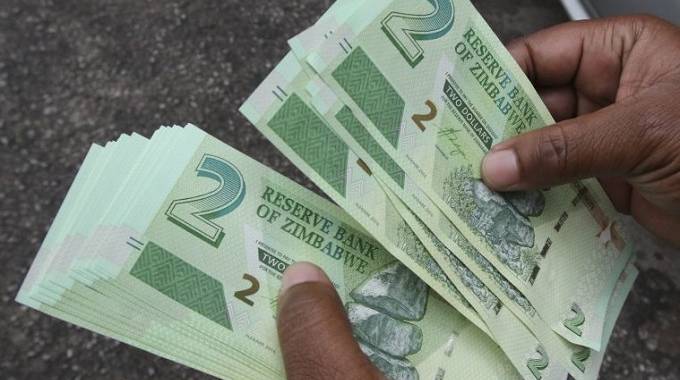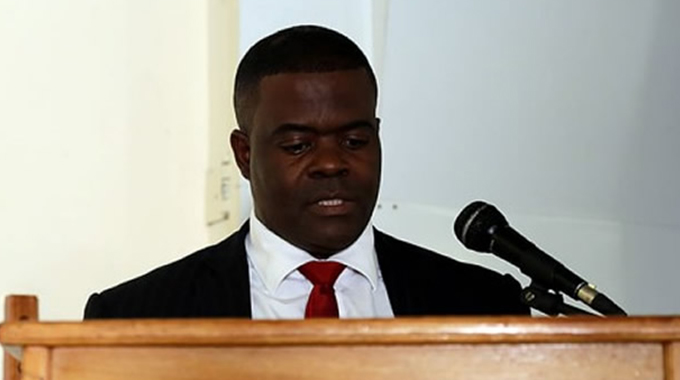EDITORIAL COMMENT: Let’s build confidence in Zim dollar, ramp up production

THE stability of the Zimbabwe dollar will be predicated on a firm support structure anchored on increased production in industry, mining, agriculture, appropriate polices from Government and confidence built by Zimbabweans themselves supporting their currency. Economic growth can only be achieved with a local unit of trade which monetary authorities can control in relation to the prevailing macro-economic fundamentals and this was what informed the introduction of the Zimbabwe dollar as the sole tender in the country.
Apart from the need to kill speculative tendencies on the parallel market that had seen exchange rates galloping on a daily basis with adverse effects on pricing of commodities, the scrapping of the multi-currency regime was also meant to support local industries that were hamstrung by rising production costs that were rendering their products uncompetitive.
The United States dollar — which had become the widely accepted currency of trade in Zimbabwe – was making local goods expensive both on the local and export markets. Something had to give. Government has already explained why it took the decision to introduce the Zim dollar. What is needed now are confidence building measures to ensure that it does not lose value and is widely accepted across the country.
The starting point is Zimbabweans themselves embracing their currency and desisting from negativity that can have an adverse effect on the strength of the Zim dollar. By continuously reverting to the use of the US dollar, businesses are undermining the local currency and fuelling inflation. We are aware that since use of the US dollar was outlawed for local transactions, some businesses which include high end restaurants, pubs, pharmacies and selected shops are still clandestinely charging their products and services in foreign currency in direct contravention of Government policy.
We have also witnessed an unprecedented rise in prices of basic commodities since promulgation of Statutory Instrument 142 of 2019 which ended the multi-currency system with businesses hedging against possible losses by charging a premium on their products. Government has said it is alive to this sad development and will be implementing measures to put a stop to it.
It has also put in place measures to ensure enforcement of SI 142 among them the Bank Use Promotion and Suppression of Money Laundering Act (Chapter 24:24), deploying the Financial Intelligence Unit within the Reserve Bank of Zimbabwe and the police who are already seized with ensuring compliance with the new regulations.
We welcome the assurance by the Minister of Finance and Economic Development, Professor Mthuli Ncube, that authorities have instituted measures that will ensure that the local currency will not suffer previous depredations.
Appearing before the Parliamentary Portfolio Committee on Finance and Economic Development in Harare on Monday, Prof Ncube answered a number of burning questions which Zimbabweans had regarding the Zimbabwe dollar among them whether the right fundamentals were in place for the re-introduction of the domestic currency.
The Committee also sought clarity on the printing of notes and whether there was enough publicity explaining the statutory instrument. The overriding concern by the legislators was that the country would not return to the 2008 era when hyperinflation rendered the Zimbabwe dollar worthless.
In response, Prof Ncube said there has been a change of policies from those in 2008, adding that the issue was not about the currency but the policies that supported a stable currency. “There must be fiscal discipline and what we have at the moment is fiscal discipline of the highest quality and the results speak for themselves.
“We don’t have a budget deficit, we have a surplus which we are deploying now to our social protection, and we will be increasing salaries for the civil servants and importation of food. The second fundamental is the monetary discipline in the form of managing the growth of money supply. The growth of money supply in the last few months has been flat because there was fiscal discipline which has been a problem in the first place.
“If you go back to 2008, it is the exact opposite. We had no fiscal discipline, we had no monetary sector discipline. The budget deficit was huge, rising and uncontrollable and was being monetised through the printing of money. We saw many zeros, we removed some and they came back. We do not have that at the moment, we have the right fundamentals to support the domestic currency,” he said.
We are glad that Government has clarified these issues and hope that Zimbabweans will accept the local currency and support measures being put in place to ensure it works.
Indeed, the situation now is totally different from the 2008 era and people should not worry about a return to that period. What is critical now is that the country produces enough food and stops importing.
Our industries need to be capacitated to compete with imports. In the same vein, our mining sector, particularly gold, needs to continue increasing production so that our currency can thrive.







Comments